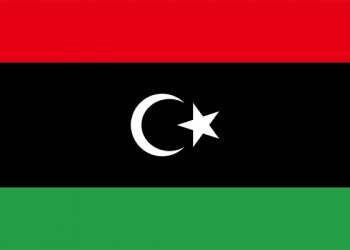After passing the minimum wage law in 2019, the National Assembly has been unable to pay its staff on the new wage scale.
The management of the National Assembly has attributed the non-payment of 22-months minimum wage of its workers arrears to the non-implementation of the new national minimum wage for its workers.
The workers, under the aegis of the Parliamentary Staff Association of Nigeria (PASAN) are billed to commence a strike action on Tuesday after issuing a strike notice a fortnight ago.
This follows the failure of the management to meet their demands.
Some legislative aides have also threatened to join the industrial action at the National Assembly.
President Muhammadu Buhari had in April 2019 signed a new national minimum wage bill increase for workers from N18,000 to N30,000 which NASS itself had passed but its management is yet to
implement.
Speaking to Peoples Gazette on Tuesday, NASS Director of Information, Rawlings Agada, assured that the management is addressing the situation and is already reaching out to the staff union.
Mr Agada said: “It is the arrears that have been accumulating from the date of the passage of the new minimum wage. They are looking at the consequential outstanding arrears, that is what they are calculating as 22-months which as at the last time, it would have come into effect. So, it is not that the whole salaries were not paid, it is the additional provided by the new minimum wage. We have to graduate the payment
schedule of the new salary structure.”
“If the whole money was readily available, management will pay. Management can only pay what they have now that is available to them,” he stated further.
He explained further that: “The National Assembly gets a budget of N150 billion and this has been sustained for over ten years. So, within this budget, if there is additional cost on that budget, if we don’t get extra money to enhance it, it will affect every other of our sub-heads upon which those funding are deployed as we have over seven organs of the National Assembly that is operating concurrently joint to draw money from that budget within which they operate capital, personnel cost and over-head.”
“It is something that can’t be done by magic and the only way we can get it done is to ensure that the proper figure that is involved in this thing is imputed into the budget which is the only source from which we get money; we don’t earn revenue from any other source,” he also noted.
Disclosing that the management has met 75 per cent of their demands, he however was quick to point out that management won’t borrow money to pay the outstanding arrears.
He said, “If the money is not available to management, management cannot commit itself to securing money to pay. So, all that needs to be done now is that they are trying to lay it down in a way that the both the management and the union should be on the same page on this matter and agree that when the fund is enough to go round for those months of arrears and if it is available, they’ll pay. That’s what it hascommitted itself to,” he further added.
Other demands of PASAN according to the Nation, include the urgent implementation of their rent subsidy at 40 per cent of their annual salary, payment of hazard allowance at five per cent of their monthly salary, gratuity for each retiring staff and pending promotion arrears.







